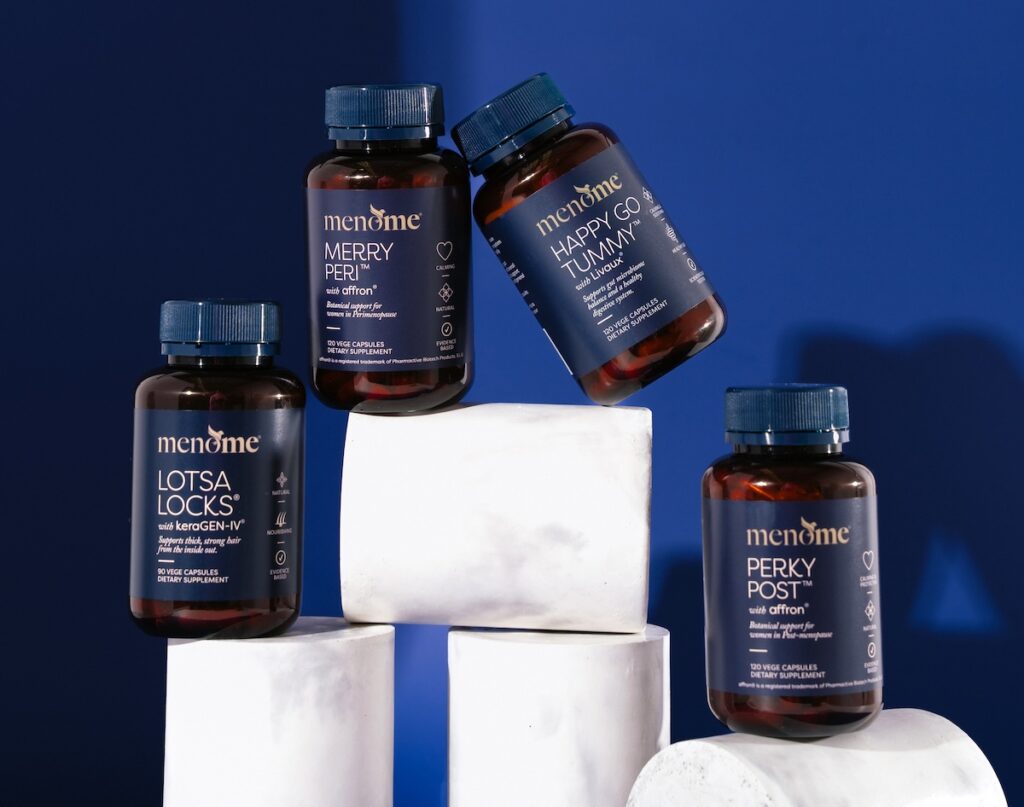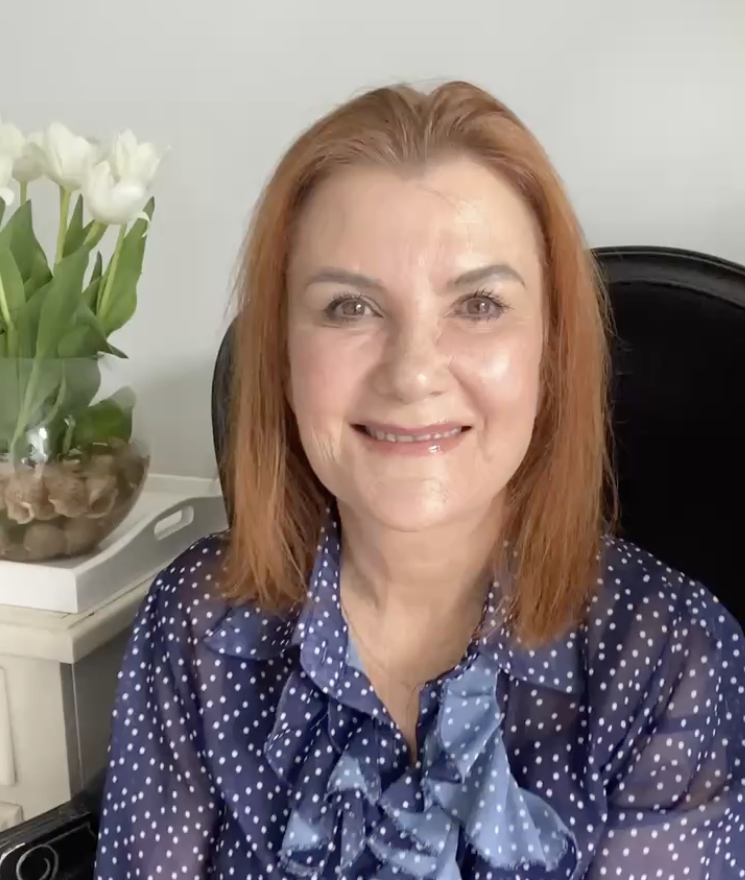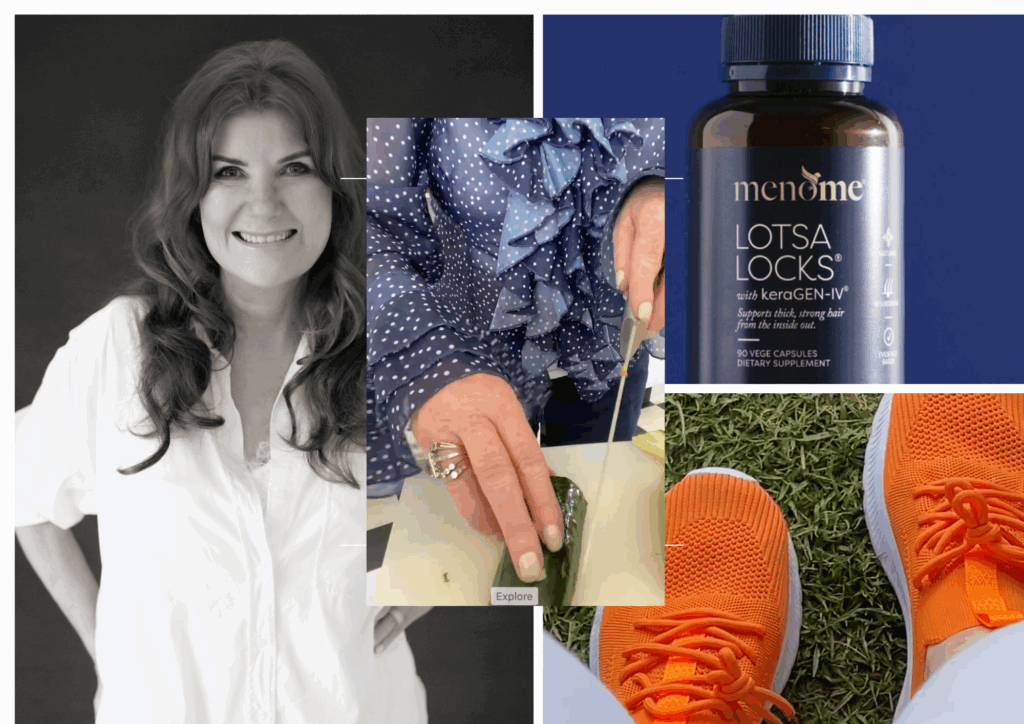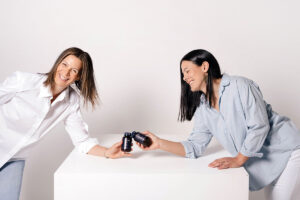In this second issue of the Get to Know the Women of MenoMe® series, we introduce you to Jenna. If you don’t already know her, that is. Think of this series as your backstage pass to the real people who pack your parcels, answer your questions, and road-test the supplements (tough gig, right?). 💙
Meet Jenna Moore - Accredited Menopause Coach & Practitioner

1. Who are you and what do you do at MenoMe®?
I’m Jenna, and I’m an accredited menopause coach and practitioner, with 10 years of study, research, and working (as well as living with) the physical and psychological twists of peri and post-menopause.
I’m also a professional writer and interviewer, so I turn my knowledge into words and interview incredible people – from our amazing community to experts in the “menoverse” – on the podcast we sponsor, Women On Fire®. (Also on YouTube.)
I’ve been part of Team MenoMe® since the early days, doing a little bit of everything along the way. I’ve run my own websites since almost the dawn of the internet, so I know my way around digital life.
2. Your MenoMe® Must-Haves
I swear by the trifecta: I started with Merry and moved to Perky (insider speak for Merry Peri® & Perky Post®). You see, I not only transitioned from peri to post – I also know how vital vitamin D is for women. I had a rocky peri, and these help keep me calm, steady and not sleep-deprived.
Then, when HGT (Happy Go Tummy®) came along for gut health, I jumped on it to knock gas on the head (because peri: menopause shakes that up). I made a webinar about it all here. (You’re welcome!)
Plus, I’m passionate about LotsaLocks® because thinning hair, weak nails and dull skin are no fun! Coming from a beauty background (see below), I can spot a great product from a mile away. 😉

3. Your Typical Day?
I start my day with pure lemon or ginger slices in lukewarm water and – tide permitting – a walk along the beach listening to a podcast. Morning light resets your circadian rhythm, and it’s a beautiful way to keep up-to-date with the latest research.
Back home, it’s filtered water to rehydrate, then into emails, messages, and the to-do list. I usually eat around 10am – intermittent fasting works for me – and breakfast is usually wholegrain rolled oats with buckwheat, nuts, seeds and soy milk. If dairy and I are on good terms, I’ll add Greek yoghurt and berries drizzled with some extra virgin olive oil, to cover off protein, fat and fibre.
Then it’s a mix of writing, filming, checking with the Goddesses in our private Facebook group or ladies on the Shake It Off® 10-Day Reset, answering customer questions, and perhaps interviewing or creating a webinar.

4. What I Love Most About Team MenoMe®
In many ways, MenoMe® has been a labour of love, so knowing our products and education help support thousands of women safely during menopause is gratifying. There’s something special about being part of a team that champions women through a stage of life that’s been relegated to the shadows for too long.
5. Interesting Fact?
I started in beauty and fashion, then pivoted to publishing in my early 30s, becoming a beauty and health editor, cover story writer, and photographic stylist for glossy magazines. That meant interviewing celebrities, casting models, styling shoots, jetting off to events – and yes, opening mountains of packages of the latest beauty launches (I used to joke I had a Master’s in opening gifts! 😊).
But life also gave me perspective: I’d had two sisters with Cystic Fibrosis, and I knew there was another side to life. So I created an annual breast cancer report that ran for eight years, co-wrote a book on living well with breast cancer with naturopath Lani Lopez, and helped grow the awareness we have today.
6. Wisdom for Peri & Post-Menopause

Overhaul your diet and move your body – it doesn’t have to be perfect, just consistent. Do what you can with movement (I know aches can be uncomfortable) and eat more whole, Mediterranean-style foods.
Don’t get lost in social media “shoulds”, it’ll drive you crazy! And goodness knows there’s a ton of misinformation out there.
Best tip ever? Add 20–30ml of high-quality extra virgin olive oil (it’s expensive, sorry!) to your day. Your joints and any aches and pains will thank you and drink up its anti-inflammatory power. 🙂
7. In Closing...
MenoMe® began 10 years ago; I joined in 2016. Back then, menopause wasn’t “cool” to talk about, and I copped plenty of flak.
Now? Everyone’s talking about it – and that’s a wonderful thing. Change only happens when women (and men) speak up. I witnessed this with our breast cancer work 20 years ago. 🙂
💙 Jenna





